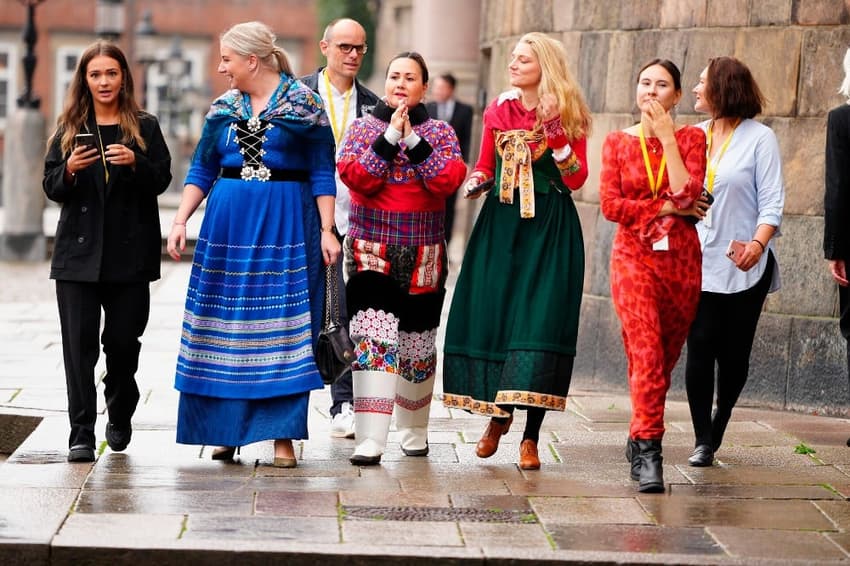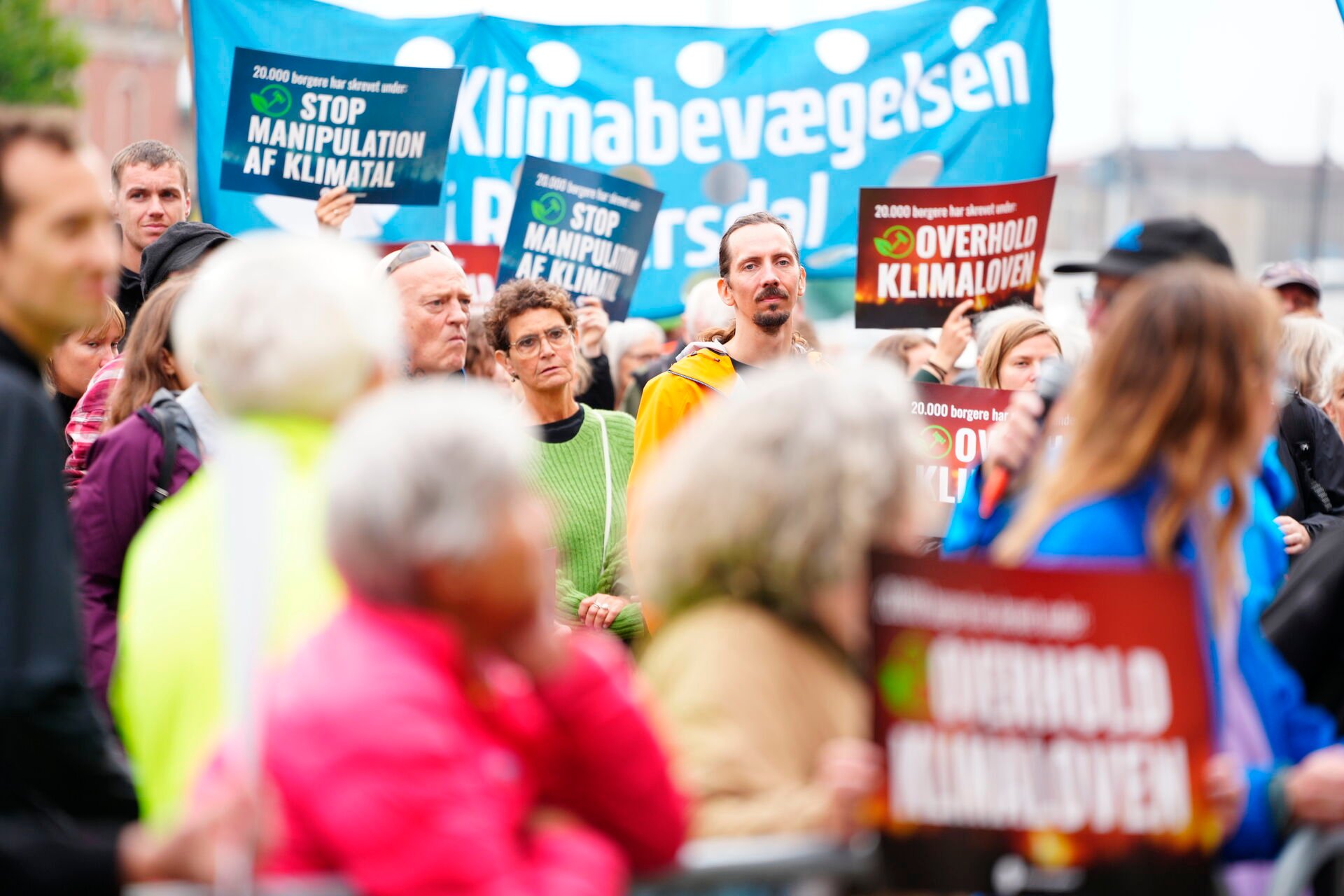Why does Denmark reopen parliament at the start of October?

Denmark’s new parliamentary year is always commenced on the first Tuesday in October. Why is the custom important and what can be expected this year?
Parliament is opened each year on the first Tuesday in October with a traditional speech given by the prime minister – somewhat comparable to a ‘State of the Union’ speech – in which she gives her assessment of the situation in the Scandinavian nation as the new political year begins.
In practical terms, the reopening of parliament means Danish lawmakers will go back to voting on and discussing law proposals.
The reopening of parliament often sees demonstrators gather in front of Christiansborg and 2023 is not exception, with protestors outside the parliament on Tuesday calling for more action and transparancey on climate change.

Climate activists were among those to demonstrate before the traditional opening of parliament in 2023. Photo: Liselotte Sabroe/Ritzau Scanpix
The opening speech is usually attended by the Queen and members of the Royal Family, who watch from the Folketinget parliament’s Royal Box.
After lawmakers attend a service at the nearby Christiansborg Slotskirke church – which is also used for royal ceremonies – the Queen and other royal family members arrive at parliament for the opening ceremony, where they are received by the Speaker.
The opening session is traditionally led by parliament’s longest-serving member. Formalities including voting for the Speaker and deputy speakers.
This is followed by the traditional opening speech from the prime minister.
While there are no predefined expectations as to the content of the speech, the Danish constitution states that the PM must make her assessment of the state of the kingdom and present some of the government’s initiatives.
Usually, the prime minister gives a speech at which she outlines the government’s strategies and key issues for the incoming parliamentary session, and sums up the previous year.
In 2020, most of the regular traditions of the annual opening of parliament were observed amid Covid-19 restrictions, with the church service attended by most members of parliament moved from its normal location at Christiansborgs Slotskirke to the larger Holmens Kirke nearby, to allow social distancing.
The following year, Prime Minister Mette Frederiksen talked about topics including affordable housing, international climate targets and education, while in 2022 the agenda included economic challenges and international security.
Once the formalities are over, the coalition government faces a challenging new parliamentary session. Poor polling, the upcoming vote on the bill to make it illegal to burn the Quran publicly, tax cuts which are unpopular among pro-welfare Social Democratic party members and internal disagreement over hiring from abroad in response to the labour shortage are all among the matters that must be dealt with in the coming year.
Comments
See Also
Parliament is opened each year on the first Tuesday in October with a traditional speech given by the prime minister – somewhat comparable to a ‘State of the Union’ speech – in which she gives her assessment of the situation in the Scandinavian nation as the new political year begins.
In practical terms, the reopening of parliament means Danish lawmakers will go back to voting on and discussing law proposals.
The reopening of parliament often sees demonstrators gather in front of Christiansborg and 2023 is not exception, with protestors outside the parliament on Tuesday calling for more action and transparancey on climate change.

The opening speech is usually attended by the Queen and members of the Royal Family, who watch from the Folketinget parliament’s Royal Box.
After lawmakers attend a service at the nearby Christiansborg Slotskirke church – which is also used for royal ceremonies – the Queen and other royal family members arrive at parliament for the opening ceremony, where they are received by the Speaker.
The opening session is traditionally led by parliament’s longest-serving member. Formalities including voting for the Speaker and deputy speakers.
This is followed by the traditional opening speech from the prime minister.
While there are no predefined expectations as to the content of the speech, the Danish constitution states that the PM must make her assessment of the state of the kingdom and present some of the government’s initiatives.
Usually, the prime minister gives a speech at which she outlines the government’s strategies and key issues for the incoming parliamentary session, and sums up the previous year.
In 2020, most of the regular traditions of the annual opening of parliament were observed amid Covid-19 restrictions, with the church service attended by most members of parliament moved from its normal location at Christiansborgs Slotskirke to the larger Holmens Kirke nearby, to allow social distancing.
The following year, Prime Minister Mette Frederiksen talked about topics including affordable housing, international climate targets and education, while in 2022 the agenda included economic challenges and international security.
Once the formalities are over, the coalition government faces a challenging new parliamentary session. Poor polling, the upcoming vote on the bill to make it illegal to burn the Quran publicly, tax cuts which are unpopular among pro-welfare Social Democratic party members and internal disagreement over hiring from abroad in response to the labour shortage are all among the matters that must be dealt with in the coming year.
Join the conversation in our comments section below. Share your own views and experience and if you have a question or suggestion for our journalists then email us at [email protected].
Please keep comments civil, constructive and on topic – and make sure to read our terms of use before getting involved.
Please log in here to leave a comment.